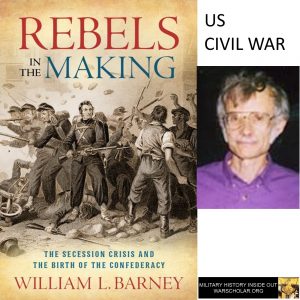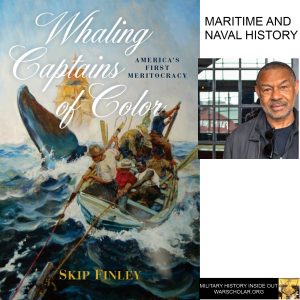Podcast: Play in new window | Download
Subscribe: RSS
 Phillip Meilinger interview about his military history and lessons book “Thoughts on War”
Phillip Meilinger interview about his military history and lessons book “Thoughts on War”
Check out this book here https://amzn.to/2R2Bu24
Interview Timeline
Phillip Meilinger has spent decades both in the military as an Air Force officer and teaching military history and issues in staff and war colleges. He’s written numerous essays on military history and he’s collected a number of his essays and reexamined them for this book. We spoke about the book and [subjects] history ranging from Ancient Rome, to Clausewitz, to the US Civil War and on through to World War Two and beyond.
(THE AUDIO PLAYER IS AT THE BOTTOM OF THE POST.)
0:40 – Philip talks about having been a pilot for 30 years and what prompted him to write a book on war.
3:58 – Philip talks about covering ancient to modern warfare in the book.
5:18 – Philip talks about the influence about von Clausewitz on military colleges.
8:03 – Philip talks about Clausewitz’ idea of the bloody battle.
12:11 – Philip talks about how the book reassesses past battles and the impact of air power on war. He also addresses policy in warfare.
18:01- Philip talks about how to make major changes in American doctrine and military policy.
21:08 – Philip talks about the effect of nuclear weapons on waging war.
23:57 – Philip talks about the information age and non-state actors.
27:41 – Philip talks about whether Chinese and Russian military activities are a new kind of warfare.
31:56 – Philip talks about how doctrine does not need to be changed but rather a different approach is needed.
36:01 – Philip talks about raids and punitive actions in modern war.
39:55 – Philip talks about the use and effect of strategic bombing.
44:35 – Philip talks about the budgets for aircraft carriers and new generation jets.
47:58 – Philip talks about balancing the US force and defense spending.
50:20 – Philip talks about how he put the book together.
52:00 – Philip talks about how much the US military was involved in politics in American history.
59:06 – Philip talks about how there was not a unity of command in WWII Europe among the allies.
1:00:34 – Philip talks about air intelligence during WWII.
1:04:13 – Philip talks about the Army Air Corps in WII and a book he wrote on a misconception about their status within the Army.
Links of interest
https://www.kentuckypress.com/9780813178899/thoughts-on-war/
Contact Information
For more “Military History Inside Out” please follow me at www.warscholar.org, on Facebook at warscholar, on twitter at Warscholar, on youtube at warscholar and on Instagram @crisalvarezwarscholar. Or subscribe to the podcast on Apple Podcasts | Google Podcasts | Stitcher | Spotify Please see historyrabbithole.com for a list of my dozen or so blogs and podcasts. You’re sure to find something you like.
Guests: Phillip Meilinger
Host: Cris Alvarez
Tags:
Books, audio interviews, author, podcast, University Press of Kentucky, General military history, United States,
Check out this book here https://amzn.to/2R2Bu24
As an Amazon Associate I earn from qualifying purchases.


 American Civil War – An interview with William Barney about his new book Rebels in the Making, published by Oxford University Press, on Southern secession in 1860 to 1861.
American Civil War – An interview with William Barney about his new book Rebels in the Making, published by Oxford University Press, on Southern secession in 1860 to 1861. 